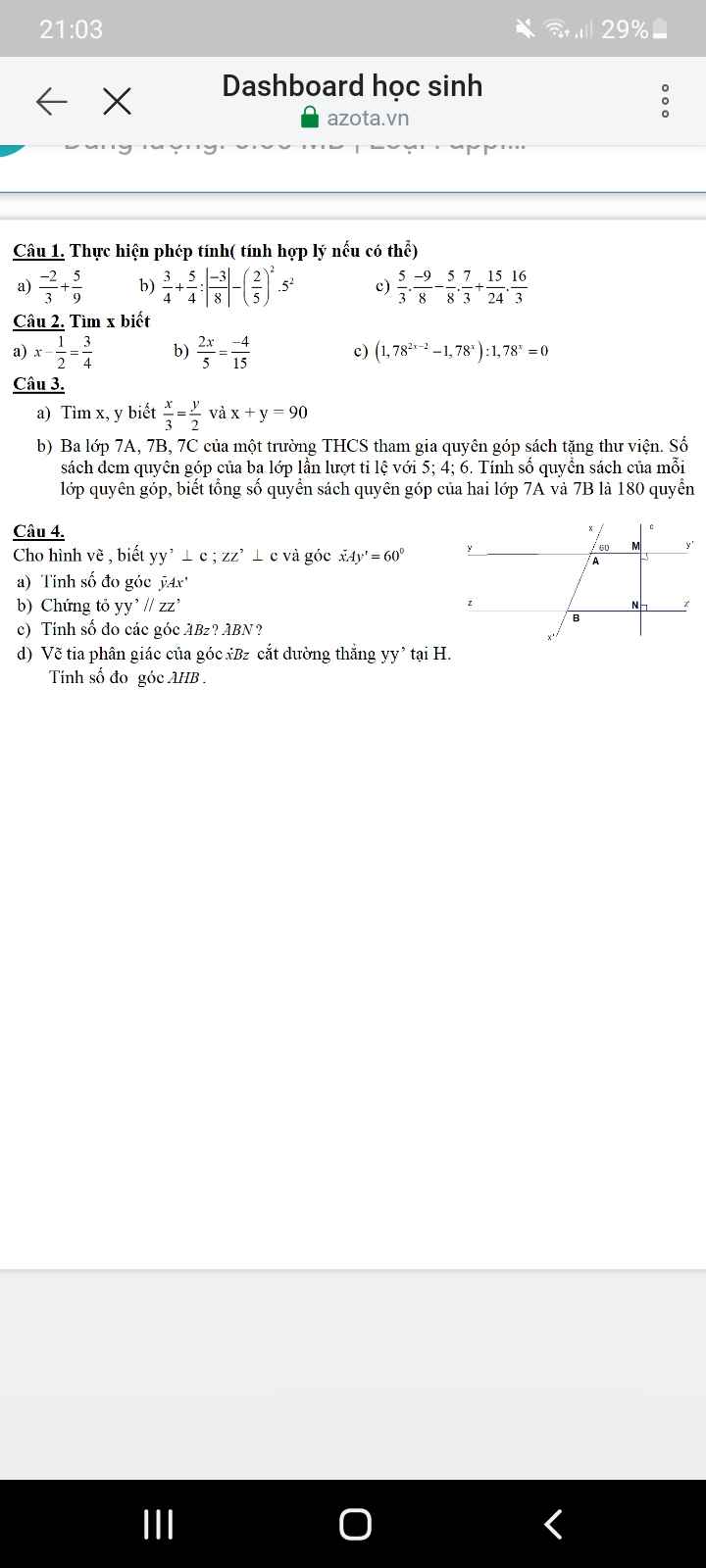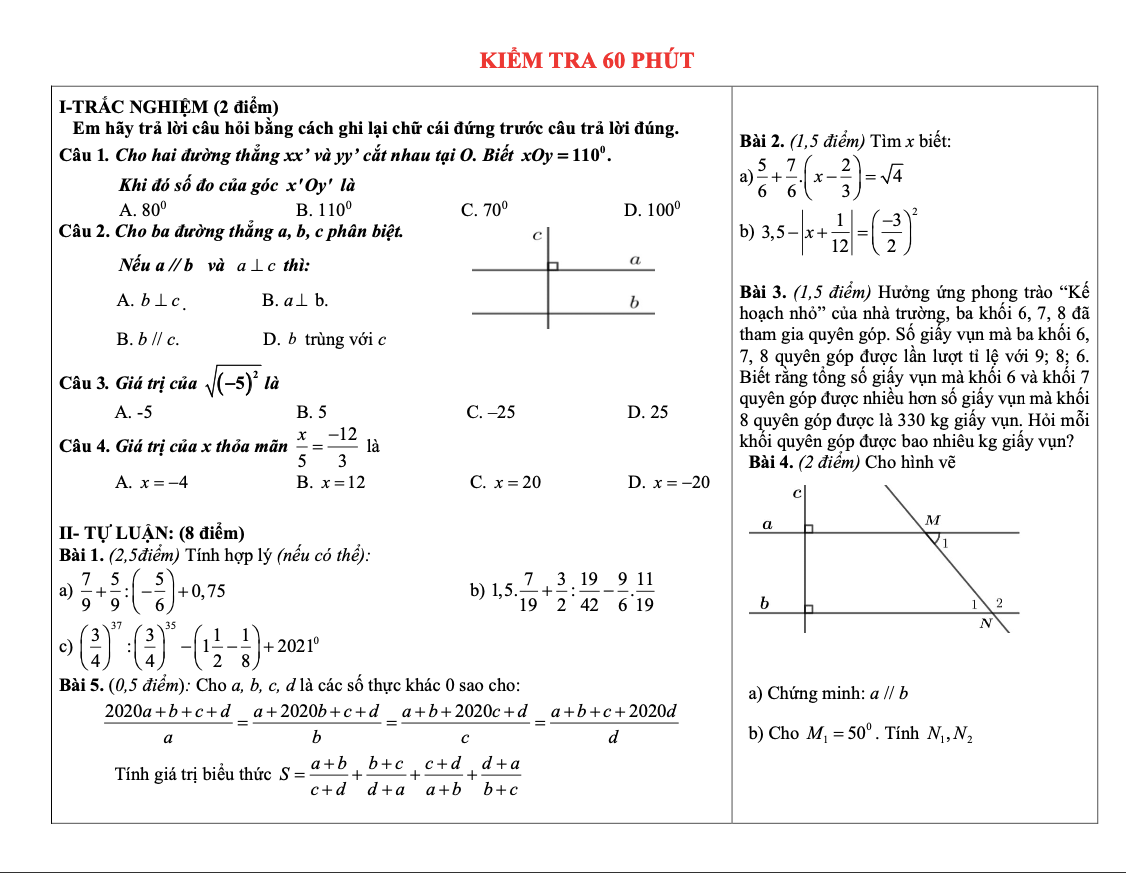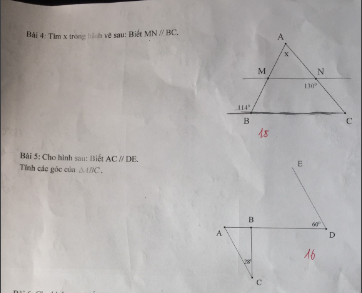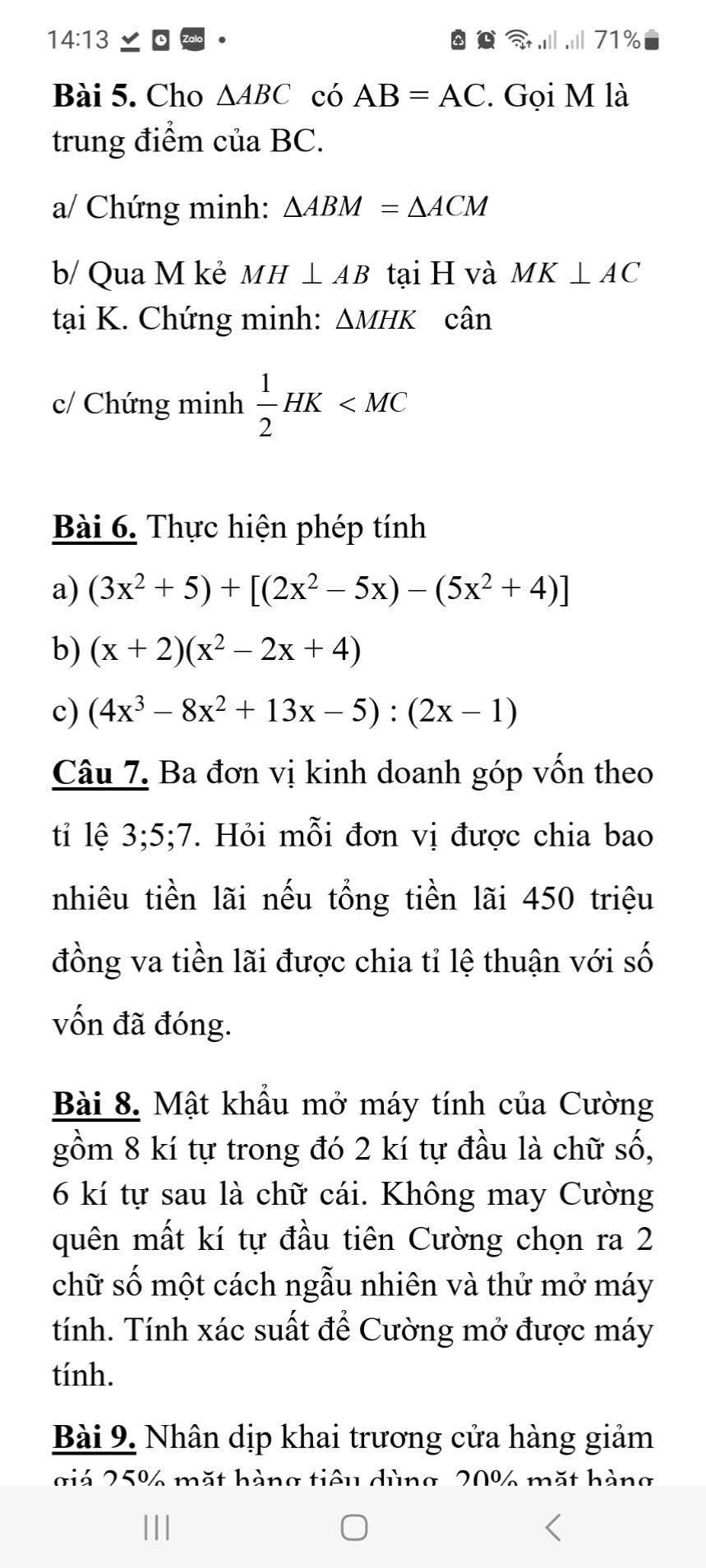
Hãy nhập câu hỏi của bạn vào đây, nếu là tài khoản VIP, bạn sẽ được ưu tiên trả lời.


a) \(\left(2x-3\right)^2=25\)
\(\Leftrightarrow\left(2x-3\right)^2=\left(\pm5\right)^2\)
\(\Leftrightarrow\orbr{\begin{cases}2x-3=5\\2x-3=-5\end{cases}}\Leftrightarrow\orbr{\begin{cases}x=4\\x=-1\end{cases}}\)
Vậy: x = 4 hoặc x = -1
b) \(\frac{27}{3x}=3\Leftrightarrow\frac{9}{x}=3\Leftrightarrow9=3x\Leftrightarrow3x=9\Leftrightarrow x=\frac{9}{3}=3\)
=> x = 3

Câu 3:
a: Áp dụng tính chất của dãy tỉ số bằng nhau, ta được:
\(\dfrac{x}{3}=\dfrac{y}{2}=\dfrac{x+y}{3+2}=\dfrac{90}{5}=18\)
Do đó: x=54; y=36

10³ + 2¹⁵
= 1000 + 32768
= 33768
Mà 33768 : 33 = 1023 (dư 9)
Em xem lại đề

\(\text{f(1)=}2.1^2+1=3\)
\(\text{f(-1)=}2.\left(-1\right)^2+1=3\)
\(\text{f(2)=}2.2^2+1=9\)
\(\text{f(0)=}2.0^2+1=1\)
\(\text{f(-3)=}=2.\left(-3\right)^2+1=19\)




Bài 6
a) (3x² + 5) + [(2x² - 5x) - (5x² + 4)]
= 3x² + 5 + (2x² - 5x - 5x² - 4)
= 3x² + 5 + 2x² - 5x - 5x² - 4
= (3x² + 2x² - 5x²) - 5x + (5 - 4)
= -5x + 1
---------‐----------
b) (x + 2)(x² - 2x + 4)
= x.x² - x.2x + x.4 + 2.x² - 2.2x + 2.4
= x³ - 2x² + 4x + 2x² - 4x + 8
= x³ + (-2x² + 2x²) + (4x - 4x) + 8
= x³ + 8
-------------------
c) (4x³ - 8x² + 13x - 5) : (2x - 1)
= (4x³ - 2x² - 6x² + 3x + 10x - 5) : (2x - 1)
= [(4x³ - 2x²) - (6x² - 3x) + (10x - 5)] : (2x - 1)
= [2x²(2x - 1) - 3x(2x - 1) + 5(2x - 1)] : (2x - 1)
= (2x - 1)(2x² - 3x + 5) : (2x - 1)
= 2x² - 3x + 5





 giúp mik với ạ mik cần gấp. GIẢI CỤ THỂ GIÚP MIK vs ạ
giúp mik với ạ mik cần gấp. GIẢI CỤ THỂ GIÚP MIK vs ạ

\(e.\left(\dfrac{-13}{3}-\dfrac{4}{9}\right)-\left(\dfrac{-10}{3}-\dfrac{4}{9}\right)\\ =\dfrac{-13}{3}-\dfrac{4}{9}+\dfrac{10}{3}+\dfrac{4}{9}\\ =\left(\dfrac{-13}{3}+\dfrac{10}{3}\right)+\left(\dfrac{4}{9}-\dfrac{4}{9}\right)\\ =-\dfrac{3}{3}=-1\\ d.\dfrac{-4}{12}-\left(-0,25-\dfrac{13}{39}\right)+0,75\\ =\dfrac{-1}{3}-\left(-\dfrac{1}{4}-\dfrac{1}{3}\right)+\dfrac{3}{4}\\ =-\dfrac{1}{3}+\dfrac{1}{4}+\dfrac{1}{3}+\dfrac{3}{4}\\ =\left(-\dfrac{1}{3}+\dfrac{1}{3}\right)+\left(\dfrac{1}{4}+\dfrac{3}{4}\right)\\ =0+\dfrac{4}{4}\\ =1\)